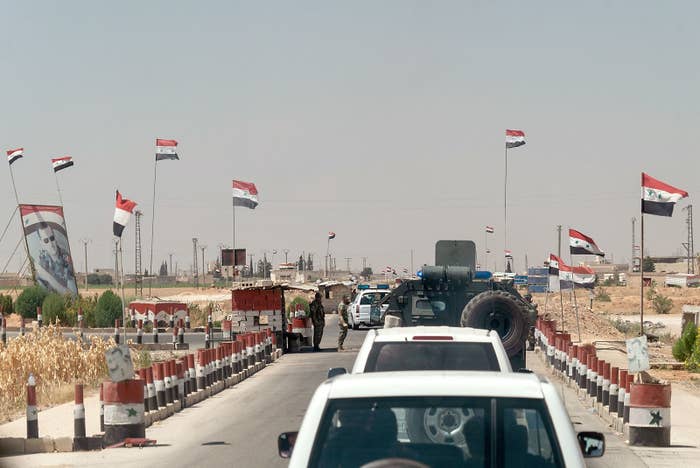
The Trump administration announced on Friday that it is ending US funding for the Syria stabilization project, redirecting over $200 million that had been promised to help stabilize the country.
“Since April, the Department has elicited approximately $300 million in contributions and pledges from Coalition partners to support critical stabilization and early recovery initiatives in areas liberated from ISIS in northeast Syria,” State Department spokesperson Heather Nauert said in a statement. The statement stressed that those contributions and pledges include $100 million from Saudi Arabia.
As a result, the State Department says, Secretary of State Mike Pompeo redirected roughly $230 million in stabilization funds for Syria. The decision, Nauert said, allows the United States to “free up US tax dollars to use on other key foreign policy priorities.”
“In April we identified the need to focus on coalition burden sharing and coalition funding,” Brett McGurk, special presidential envoy for the Global Coalition to Defeat ISIS, told reporters on a call on Friday, saying that today’s announcement is the result of two meetings — one in June in Morocco, and one on July 12 on the margins of the NATO ministerial.
McGurk noted that the $300 million pledged not only offsets the US’s withdrawn contribution but increases the amount that the coalition can spend on the ground on efforts such as demining and basic health and essential services. McGurk said the funding would support the programs the United States had identified, though some will be spent through US mechanisms and some through other international mechanisms (McGurk did not specify what those would be).
Stabilization, McGurk said, is separate from long-term reconstruction. In November 2017, the United Nations special envoy for Syria, Staffan de Mistura, estimated the reconstruction of Syria would cost at least $250 billion.
“We’ve made very clear that international reconstruction assistance for Syria will not be coming in until we have unalterable progress on the Geneva track,” McGurk said, referring to the stalled discussions in Switzerland over a political solution to the Syrian conflict.
“That’s the door to getting what we believe the regime, the Russians, very much want, which is international money flowing into the wreckage that is Syria,” Acting Assistant Secretary for the Bureau of Near Eastern Affairs David M. Satterfield added on the same call.
The US government froze funding for a host of projects related to Syrian civil society back in May. In response, groups like the White Helmets, a search and rescue group, and the Committee for the Restoration of Stability in Aleppo, which runs reconstruction in that part of the country, expressed concern that frozen funding could make ISIS more popular among local populations. At the time, a State Department official told BuzzFeed News that the Trump administration expected the groups to be able to continue their efforts with funding from other sources.
Friday’s announcement comes the same week the Pentagon warned that ISIS "is well positioned to rebuild and work on enabling its physical caliphate to re-emerge."
Despite Trump's assertions last month that the "eradication of ISIS" was “98%, 99%” complete, recently published reports by the US and the United Nations noted that the group may still have up to 30,000 fighters in Iraq and Syria — a far larger figure than previous estimates. While they have lost almost all of the territory they once held, military officials have been clear that the group remains a very serious threat to the stability of Syria.
For its part, the State Department insisted that the “enduring defeat of ISIS” is a top priority. “This decision does not represent any lessening of U.S. commitment to our strategic goals in Syria,” Nauert said in her statement. “The President has made clear that we are prepared to remain in Syria until the enduring defeat of ISIS, and we remain focused on ensuring the withdrawal of Iranian forces and their proxies.” She also noted that the decision to withdraw $230 million from Syrian stabilization will not affect US humanitarian assistance.
The State Department also announced that Ambassador James Jeffrey, who was previously ambassador in Iraq and Turkey, will be made special representative for Syrian engagement.
Vera Bergengruen contributed to this report.
CORRECTION
The name of the Kuweires air base was misspelled in a photo caption in an earlier version of this post.

